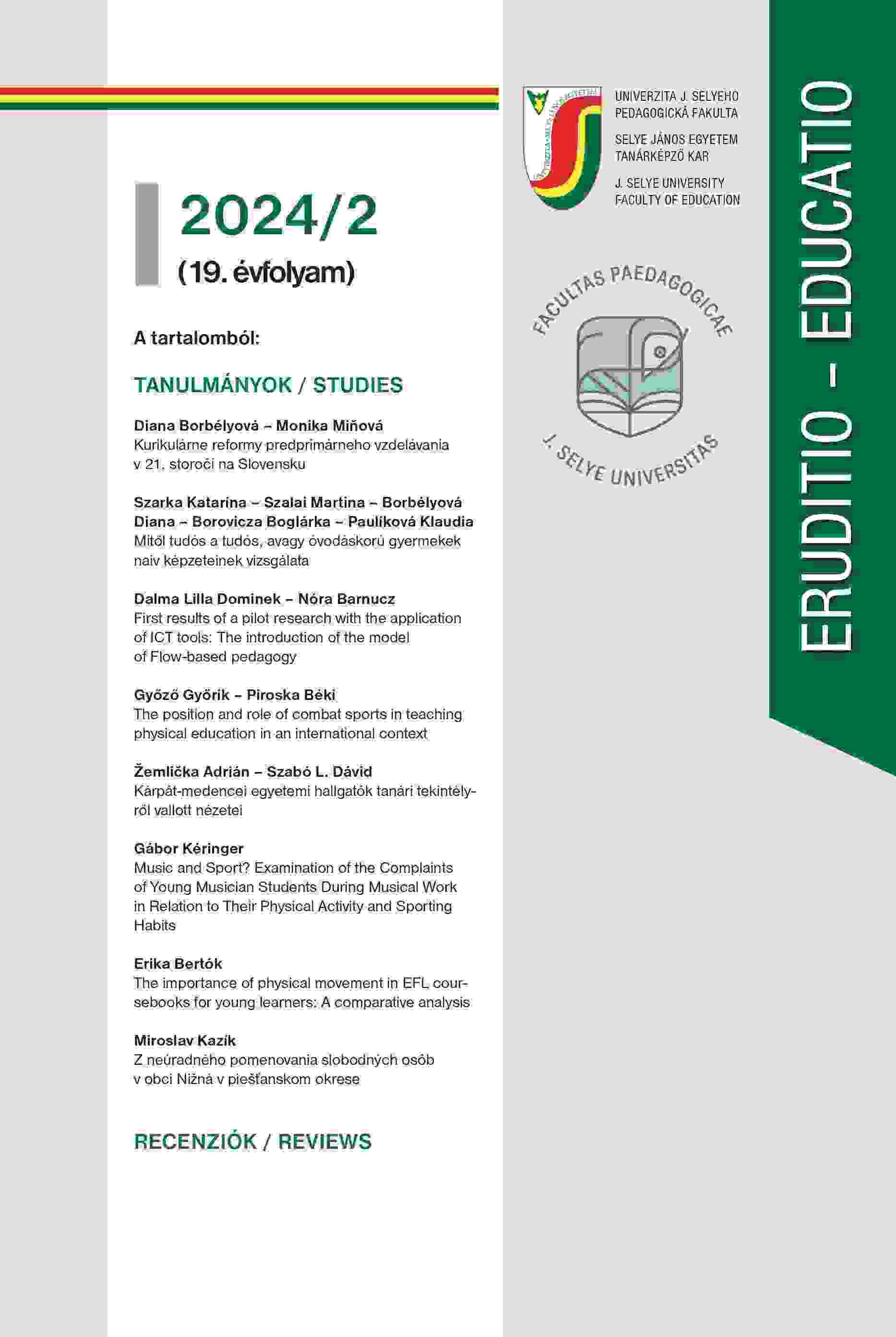Mitől tudós a tudós, avagy óvodáskorú gyerme¬kek naiv képzeteinek vizsgálata
What makes someone a scientist? Exploration of children´s naive conceptions
Author(s): Katarína Szarka, Diana Borbélyová, Klaudia Paulikova, Martina Szalai, Boglárka BoroviczaSubject(s): Social Sciences, Education, Preschool education
Published by: Pedagogická fakulta Univerzity J. Selyeho
Keywords: preschool children; conceptions; alternative conceptions; naive theories
Summary/Abstract: Naive theories have been present in our lives since the moment of our birth. The con¬ceptions we form about the world and the way it works are exceptionally beneficial for our everyday life and have an impact on the formation of images that are incorporated into our further worldview. This study provides results of an empirical research aimed at exploring preschool children’s ideas related to three concepts: scientist, research, and science. A qualitative enquiry was carried out with 92 preschool children between the ages 5-6 with the use of two research methods - projective methods and struc¬tured interview. Within the projective methods the tool of colouring pages was used with 92 children and its aim was to explore what equipment and items are associated with the concept of scientist most frequently. The structured interview then focused on the concepts of science and research with 6 children from the whole research sam¬ple. The results show that out of the 19 items and equipment present in the colouring pages 7 were most frequently paired with the concept of scientist. These items are the bank, the microscope, the magnifying glass, the telescope, the laboratory coat, safety glasses, and the briefcase. The interview revealed that the concept of science appears in children’s imagination in relation to the macroscopic world. Based on the responses, the terms science and scientist are mostly associated with a person who deals with science. The concept of research is mostly identified with alternative no¬tions of searching for and finding lost things. Similarly, naïve/alternative conceptions appear in the association between the concepts of research and scientist. The details of the research and its thorough findings are discussed in more detail in the study.
Journal: Eruditio - Educatio
- Issue Year: 19/2024
- Issue No: 2
- Page Range: 017-031
- Page Count: 15
- Language: Hungarian

